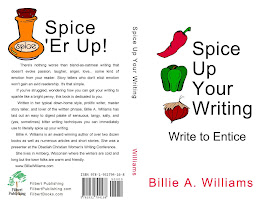
If you’re describing a technique, could you describe it to a blind person — I mean do you know it that well that some one could understand you. As one author said, Do you know how to change a tire? Prove it — could you change it on a busy freeway, in a down pouring rain — have you ever?—I’m paraphrasing here, but you get the message don’t you?
The question is, do you really know how to fly an airplane, what makes a gun a pistol or a revolver is there a difference? Were there wagon trains out in Colorado in 1819? Were there railroad trains? Thank heavens there were editors who caught my slips in my Young Adult Novel. Your character can’t think something reminds him of something, in this cased the wagon master on a wagon train, if he could not have possibly experienced it. Even if your editor misses it, one or heaven forbid, many of your fans might not. In which case you’ll probably get angry fan mail and even lose a few readers. No author can afford to lose readers or fans.
So when it’s a possibility that you aren’t exactly, one-hundred percent positive you are right—RESEARCH FIRST. I can’t stress that enough. Whether you are writing fiction or non-fiction, readers will not tolerate infractions of these types. If you were a copywriter it cost you a profitable client, in fiction, it could cost you your career. Research that will put you a head above any lazy writer who decides to fake it, who decides to assume he knows.
I had a biology professor who once had a favorite phrase that has stuck with me since he said it years ago. “Anything you assume without knowing—Ass u me — makes an Ass-out of-U and – Me.” Very apropos and a phrase worth remembering for anyone, but especially writers hoping to have a substantial career.











No comments:
Post a Comment